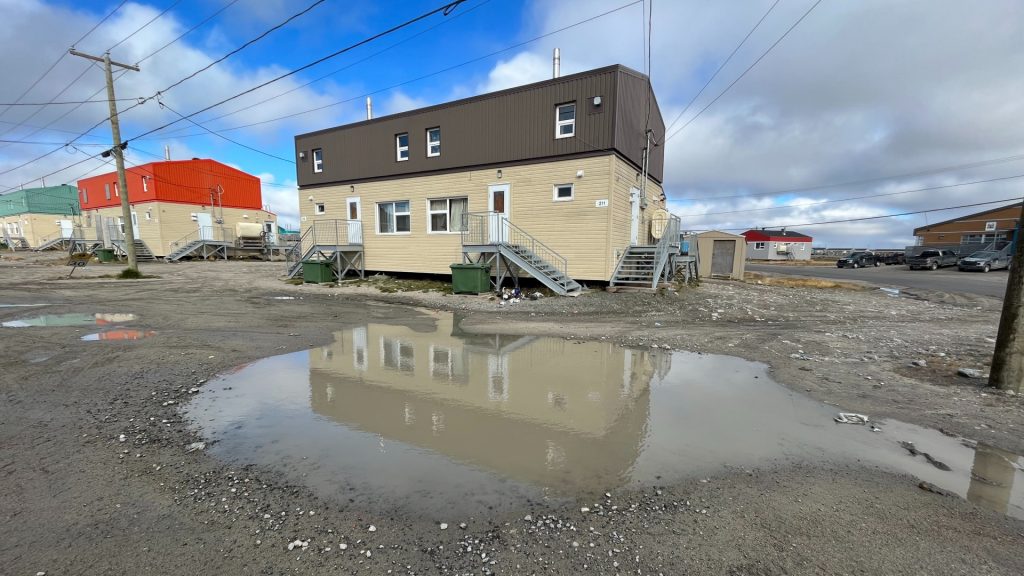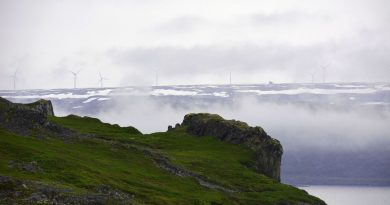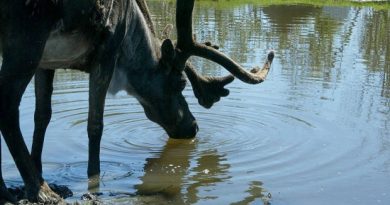Québec funds research to adapt Nunavik public housing to thawing permafrost

The vast majority of public housing in the region is built on jacks
The Société d’habitation du Québec is looking to study the effect of thawing permafrost in Nunavik on public housing, which makes up about 90 per cent of the homes in the region.
The goal is to produce a plan for the Kativik Municipal Housing Bureau (KMHB) to adapt its housing to the changing climate.
The Québec government announced $2.2 million in funding for the project.
The vast majority of KMHB’s 4,000 units are built on jacks. Thawing permafrost can lead to shifts in the ground and damage to units.
“The instability of the ground and certain construction styles can lead to movement,” says Marco Audet, KMHB’s director.
“Sometimes it creates cracks or more space between walls and the floor. These are visible changes.”
The plan will focus on adapting construction methods, maintenance and retrofitting houses. KMHB hopes to tackle some of these changes this year.
Ongoing research
The Québec government announced an additional $600,000 to Université Laval for ongoing permafrost research in the region.
The research is mostly focused in three areas: the effects of climate change on the environment, the release of greenhouse gasses, and the impact on infrastructure.
Pascale Roy-Léveillé is the head of the university’s partnership research chair on permafrost in Nunavik.
She said much of the work is making the research findings accessible to the public and allow people to make “good decisions” and “build a more resilient North.”
Ian Lafrenière is Québec’s minister responsible for relations with First Nations and Inuit.
He acknowledged the North is feelings the effects of climate change more more acutely.
“It is essential to ensure that they can be curbed quickly,” he said.
“Thanks to the ancestral knowledge of Inuit and the researchers at Université Laval, I am hopeful that concrete solutions will be found so that we can preserve this vast territory.”
Related stories from around the North:
Canada: $20 million in debt forgiven by Housing NWT in last 3 years, CBC News
Russia: Melting permafrost may release industrial pollutants at Arctic sites: study, Eye on the Arctic



